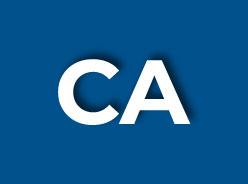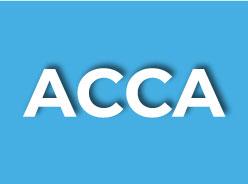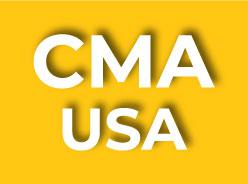ACCA is one of the most sought after globally recognized certifications. Once you have started taking the examinations and are doing well they next curve ball that will come your way is to meet the Practical Experience Requirement or PER.
The PER is a vital component of the ACCA qualification. In order to be an ACCA member all trainees, both students and affiliates must successfully complete:
- The ACCA exams
- Ethic and Professional skills module
- Practical experience requirement
Why is practical experience needed?
ACCA’s PER will help individuals develop their professional knowledge and values, help hone their ethics and behaviours that are essential to be a professional qualified accountant. The PER has 3 main components to it which are
- achieve five (5) Essentials and any four (4) Technical performance objectives by gaining the experience required to achieve the necessary elements and complete a statement for each performance objective, which are signed off by your practical experience supervisor*
- complete 36 months’ experience in one or more accounting or finance-related role
- regularly record your PER progress in your online My Experience record, which can be accessed via myACCA.
PER helps you to be an efficient and qualified ACCA working professional. It is not enough just to learn theoretical knowledge, students also need to develop their skills in the workplace along with passing the exams. This is exactly where PER comes into play. The PER will help to apply and practice the knowledge and techniques you have gained through your studies towards the ACCA exams. It will help you to observe and be involved in real-life situations which will help to develop professional skills, behaviours and attitudes. Having PER will also enable you to develop your judgement, encourage you to reflect on the quality of work and help you improve your performance in the future as well. Employees expect ACCA members to showcase their knowledge, skill set and ability to work in a professional setting while having ethical conduct behaviour. PER will help you to confirm the quality of your workplace performance.
What are the various ways by which I can get practical experience in ACCA?
You can try various methods other than the normal employment route to gain practical experience. In this article we will discuss about some of the methods you can employ to gain practical experience.
Job Rotation
A job rotation involves temporarily changing roles with a colleague. When you try job rotation you will get to perform new tasks on your own which will enable you to get valuable insights and gain new skills. Those individuals who have taken job rotations generally develop fresh ideas and feel enthusiastic when they go back to their original roles.
Secondment
A secondment is when you get a transfer to another post or a department but for a fixed period of time. This is a great opportunity for you to get more responsibility and really challenge yourself, this will increase your job satisfaction. When you are on the lookout to find a suitable secondment, you should keep a lookout for opportunities to get extended cover, for eg: for those staff who are on a sabbatical, maternity break or those who have long-term sick leaves. Your workplace mentor or others who can authorise such moves may not have thought of a secondment option for you, so make sure you take the step forward to ask about secondment so that it will benefit everyone who is involved.
On-the-job training
On-the-job training involves being monitored or supervised while tasks are being performed, this allows you to build your skills and confidence. When planning for an on-the-job training, keep a look out for activities that you would be responsible for, and for which your training would be supported and even welcomed by your colleagues. A training of this kind will demonstrate the skills you have learned to your workplace mention and to your colleagues who can ultimately influence your career trajectory.
Workshops
Workshops essentially involve you tracking part in a group session where you would be discussing on work-related topics that are approved beforehand. If you have good knowledge about a topic you can even suggest running specific workshops based on your area of expertise, these types of workshops should turn out to be very beneficial for junior employees. It is also a great way to encourage your colleagues to share or voice their opinions outside of an office environment.
Project Work
Project work involves participation in team or inter-departmental projects. It is a great idea to volunteer for project work as it may give you opportunities that otherwise may not have considered when originally planning on meeting your performance objective. Tasks including negotiating, writing reports hosting meets, planning ahead, coordinating other activities etc will help you to build your personal effectiveness skills which are a must have when practical experience requirements have to be met.
Shadowing
Shadowing consists of observing the work practices of a more experienced colleague, which is usually for a task where you cannot be given complete authority or responsibility. You will get to learn a lot by watching and listening to your fellow employees - this is provided that you have the time to explain their actions while they are doing their work. The main advantage of shadowing is that it will keep the disruption to your colleagues at a minimum. This form of working will also give you a great opportunity to ask questions, most people respond well to the opportunity where they can demonstrate their own specific skill sets.
Now let us look at some questions that most students have with respect to their PER’s
1. What will my status be considered as if I have cleared all my papers but I still haven’t completed my PER?
In order to be an ACCA member and be qualified as a professional accountant, it is essential to clear all the exams, complete the ethics and professionals skills module and complete your PER. You are not permitted to apply for membership unless you have completed all 3 components.
2. What are the steps I need to take in order to complete the practical experience requirement?
As mentioned earlier the PER consists of 3 components. All aspects of which are equally important. The first is to complete 36 months of employment ina an accounting or finance related role, the second is to obtain five essentials or at least four technical performance objectives to the satisfaction of your practical experience supervisor. And the third step is consistently recording and reporting your PER progress through the online MY Experience record.
3. When do I complete my practical experience requirement?
We highly recommend that you update your online My Experience record regularly. One of the challenges that trainees encounter when they apply for membership is that they find our that they are missing vital information such as the details of the employer, or they have failed to get sign off for time and performance objectives with a previous employer.
4. Is it possible for me to use the work experience I have gained before obtaining my ACCA qualification?
Yes. It is very much possible for you to use your experience from previous job roles (before of after registering as an ACCA students) so as to help you clain a performance objective. There is no specific time limit for this. The only requirement that is there that a qualified person who has supervised your work should be able to review and sign-off performance objectives and claim your time based on the experience you have attained. Also, as the profession continued to develop you can also consider if the experience you have attained if more that five years is still relevant.
5. How do I know if my experience is relevant?
ACCA trained are trained to find employment in every sector and in organizations both big and small. When you are keeping an eye out for opportunities make sure that they will help you to meet your PER and will help you to achieve 36 months of experience in a relevant role or roles. You should ideally be looking to find a job where you will be spending most of your time on activities or tasks which are related to accounting, finance, audit and assurance or other roles related to technical areas such as taxation, insolvency and forensic accounting.
Your work will be counted towards 36 months of experience only if your job includes some accounting or finance related work or if you have spent time on such relevant activities. Let us consider an example if you have spent 50% of your working time during your year on accounting or finance relates tasks then you can only claim six months out of the possible 12 months as relevant time. This is because when you record your role in My Experience you are required to input the percentage of time you have to spend on accounting or finance-related activities, the relevant time you will them claim will be calculated automatically.
You could also consider using your experience from previous roles, voluntary work, work placements and internships towards your PER which could include the experience you have received before you registered for your ACCA. In such cases where you have relevant previous work experience the person who has supervised your work at that time should be able to review and sign-off your experience.
If you have more questions on PER or wish to pursue your education with ACCA please contact our career experts who will guide you on the same.

 ABOUT LAKSHYA
ABOUT LAKSHYA  WHY CHOOSE LAKSHYA
WHY CHOOSE LAKSHYA  MISSION AND VISION
MISSION AND VISION  CHARTERED ACCOUNTANCY (CA)
CHARTERED ACCOUNTANCY (CA)  ACCA
ACCA  CMA-USA
CMA-USA  RESULTS
RESULTS 


